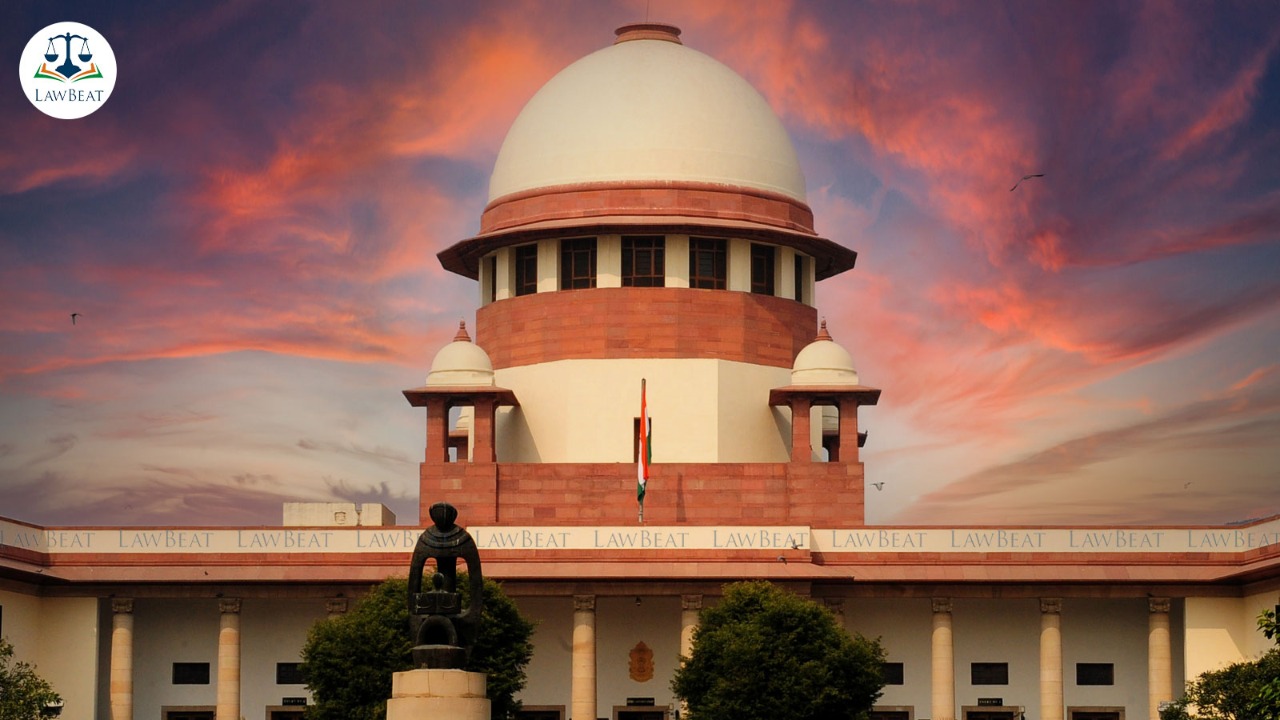'Impossible to return tolls collected,' SC sets aside order restraining NHAI from imposing levy on section of NH-77

Court said any order, modifying interim stay would in fact, be detrimental and harmful to road users as additional amount would have to be collected to make up for the highway cost
The Supreme Court has set aside a Patna High Court's direction restraining the National Highways Authority of India from collecting any fee from the users at Runni Toll Plaza on the Muzaffarpur-Sonbarsa section of National Highway-77 with effect from July 7, 2015.
A bench of Justices Sanjiv Khanna, Sanjay Kumar, and R. Mahadevan allowed an appeal filed by the Chairman of NHAI against the April 5, 2016 judgment, saying the HC's direction was "unsustainable."
"In the present case, the toll is being collected by NHAI, as the highway being constructed is under a ‘Build, Operate, and Transfer’ basis. The contractor responsible for laying the highway is being paid an annuity, which has been fixed in terms of the contract," the bench said.
The amount, lying deposited in the nationalized bank along with interest, as per the interim order of this court, cannot be returned to the highway users and may now be utilized by NHAI and would be treated as toll/fee collected from the users. It will be accounted towards the actual cost to be recovered, the bench ordered.
"Any order passed by this court, modifying the interim order, would in fact be detrimental and harmful to the road users as additional amounts would have to be collected to make up for the cost of the highway," the bench said.
The court, however, asked the Union government and NHAI to examine whether the expression “section of national highway” required proper elucidation and clarification in a manner permitted by law.
The High Court passed its order on a writ petition filed by Arvind Kumar Thakur, also directing that the appellant, NHAI, shall not levy any fee in exercise of its power under Rule 3(1) of the National Highways Fee (Determination of Rates and Collection) Rules, 2008, until the completion of the project.
The appellant cited Rule 3(1) of the 2008 Rules, which referred to the section of the national highway being complete; thereafter, highway users can be asked to pay the prescribed fee by way of toll.
"The expression ‘section of national highway’ has not been specifically defined in the National Highways Act, 1956, or the 2008 Rules. However, in the context of the present case, we need not go into the said aspect," the bench said.
The appellant-NHAI relied upon the notification of November 26, 2013, issued under Section 11 of the National Highways Authority of India Act, 1988, in relation to the stretch from kilometer 0.000 to kilometer 89.000 (Muzaffarpur-Sonbarsa Section of National Highway-77).
The said notification stated that the section length of 61.70 kilometers for the use of two-laning with a paved shoulder had been completed. It also stated that the length of 20.38 kilometers of the bypasses had also been completed, and therefore, the Central Government proposed to levy and collect a fee from the road users.
The fee prescribed for 61.70 kilometers is 60% of the base rate specified in the table given in the notification, whereas the fee prescribed for 20.38 kilometers of the bypasses is at the rate of 90% of the base rate specified in the table given in the notification.
Subsequently, an independent contractor, namely, Intercontinental Consultants and Technocrats Pvt Ltd, examined and verified the two-laning with a paved shoulder of the Muzaffarpur-Sonbarsa Section of National Highway-77. It issued a provisional completion certificate on June 29, 2015.
After hearing the arguments, the court said the High Court's judgment merely refers to Rule 3(1) of the 2008 Rules but does not interpret or address the other aspects and facts highlighted by the NHAI.
"Moreover, in the facts of the present case, this court, while issuing notice, via order dated April 25, 2016, had stayed the operation of the impugned judgment subject to the condition that the amount collected towards toll on the completed portion of the highway/road shall be deposited in a nationalized bank," the bench pointed out.
The toll users have, therefore, paid the toll, which is now lying with the nationalized bank. The private contractor, who had laid the highway, has also been paid the annuity. The annuity, it may be noted, is payable at the rate specified for 15 years. The NHAI collects the toll until the actual costs are recovered, with a stipulation that after recovery of the capital cost, the fee levied would be reduced to 40% of the user fee, it noted.
"The toll/fee, having been collected and being available in the bank, it will be impossible to return the same to the road users," the bench said.
Case Title: Chairman, National Highways Authority of India & Anr Vs Arvind Kumar Thakur & Anr
